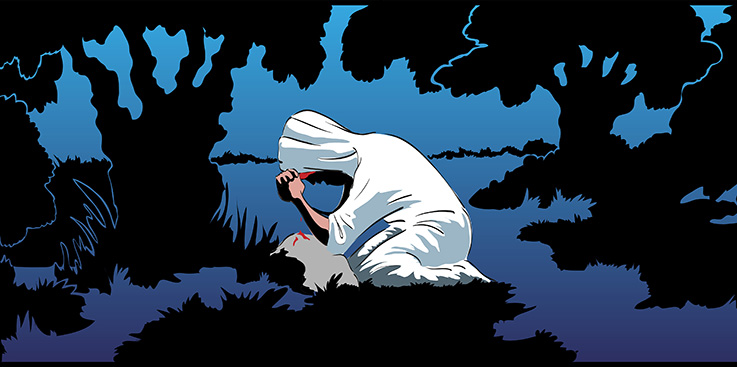Some teach that Hebrews 4 defines the seventh-day Sabbath commandment in the Decalogue as a shadow-type law pointing forward to a spiritual rest in Christ. They view the Sabbath in the same way the Old Testament sacrifices pointed forward to Christ’s atoning death on the cross. They teach that once we have found “spiritual rest” in Christ, we no longer need to observe the Sabbath day, and that keeping the seventh day is a form of bondage and an act of personal works.
It is true that the primary message of Hebrews 4 is to emphasize the believer’s rest of grace. The main point in Hebrews 3:7–4:11 is for Jewish Christians to persevere in faith and not fall into unbelief and disobedience as did their forefathers. But the reference to the Sabbath in Hebrews 4 is not a shadow of that rest in Christ, but an illustration of that rest.
A shadow or type suggests a fulfillment by Jesus that passes away. For example, when Christ died as the sacrificial Lamb and the temple curtain was torn from top to bottom, it signaled the end of the sacrificial system. We no longer sacrifice lambs because Jesus fulfilled the shadow that pointed forward to the cross.
The Ten Commandments are not part of the types or ceremonies established by God to point the Israelites toward the coming sacrifice of Jesus. The moral law of God is eternal and does not pass away (Psalm 119:160). Presenting the Sabbath as only Jewish is typically an attempt to pluck the fourth commandment out of the law of God and toss it aside. It is presented as a burden to be taken away by Jesus. But God never created the Sabbath to be a burden. To call the Sabbath a burden is a distortion.
The Sabbath is not only for the Jews, but it was a blessing instituted at Creation for all humanity before sin even entered our planet. Even the Old Testament description of true Sabbath-keeping is a picture of freedom, rest, and delight. Isaiah 58:13, 14, tells us that there is a very special blessing involved in keeping the Sabbath:“If you turn away your foot from the Sabbath, from doing your pleasure on My holy day, and call the Sabbath a delight, the holy day of the Lord honorable, and shall honor Him, not doing your own ways, nor finding your own pleasure, nor speaking your own words, then you shall delight yourself in the Lord; and I will cause you to ride on the high hills of the earth, and feed you with the heritage of Jacob your father.”
When a believer keeps the Sabbath, he acknowledges the saving work of Christ and ceases from his own works. “Speak also to the children of Israel, saying: ‘Surely My Sabbaths you shall keep, for it is a sign between Me and you throughout your generations, that you may know that I am the Lord who sanctifies you’ ” (Exodus 31:13). The Sabbath is a sign that God saves us. We cannot save ourselves.
The true sign of salvation by faith is found in the Sabbath. The sign of salvation by works will be found in a substitute Sabbath put in place by humans. When people determine to set aside God’s law and keep a day of their own choosing, they are not truly resting in grace, but attempting to be saved by their own works. There is no better way to spot such a deceitful religion than by a spurious or false Sabbath. It really comes down to choosing my way or God’s way.
Hebrews 4 shows that the Israelites, during the time of the exodus, could have found the spiritual rest of grace if they had exercised faith in God. The sacrificial system pointed them to the gospel. So also the people during the time of Joshua might have experienced that rest in grace, as also the Israelites in the time of David.
The promise of experiencing God’s grace is still available to us, but it will come only by exercising faith in Jesus. Such faith will show itself in obedience to all of God’s law (John 14:15), not in following the traditions of humans who tell us to set aside the fourth commandment.
Doesn’t Hebrews 4 mean Jesus is our Sabbath rest?

